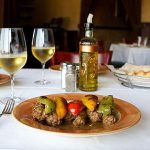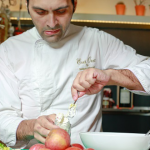
10 Mar 2014 Eataly – traditional Italian cuisine all over the world
Eataly is an original market model offering craft products from the Italian agri-food tradition that aims to educate the consumer’s perception of quality.
The inventor of the Eataly format is Italian Oscar Farinetti who, after opening his first sales outlet in Turin in 2007, has since opened another 25 in Italy, Japan, Turkey and the United States.
 He opened his latest store in December 2013 in Chicago, but further expansion is planned also for Dubai, Brazil, U.K and the18 of March will be the opening day also of a big store in Milan, Italy.
He opened his latest store in December 2013 in Chicago, but further expansion is planned also for Dubai, Brazil, U.K and the18 of March will be the opening day also of a big store in Milan, Italy.
It doesn’t end there: Farinetti just inked a deal to include the emporium and its restaurants on two MSC cruise ships.
The brand brings together a group of small companies operating in various areas of the Italian food and wine sector: from the famous hard wheat pasta of Gragnano to Langarola egg pasta, from the water of the Piedmontese Maritime Alps to the wines of Piedmont and Veneto, from the oil of the Ligurian Riviera di Ponente to Piedmontese beef, as well as traditional Piedmontese salted meats and cheeses.
For example, in order to open the 50,000 quare-foot store in New York in August 2010, the founder Oscar Farinetti teamed up with US based restaurant powerhouses such as Mario Batali, Lidia Bastianich and Joseph Bastianich.
That variety is surely surprising: from pasta, wine, salumi, to cheese, gelato and all Italian-oriented things. New York’s emporium (maybe the most popular around the world) sells over 70 different types of olive oil, makes 1,000 pounds of mozzarella per week and uses over 28 prosciutto’s legs a week.
Moreover, it sells about 6000 and 6,500 pounds of pasta per week between restaurants, retailers and direct sale, leaping to 8,500 in holiday periods.
The prices are kept low enough if we compare them to the quality offered. As a matter of fact, Eataly’s philosophy is to reduce the distribution chain of the products to the bare minimum and create a direct relationship between the producer and the end distributor, skipping the various intermediate links in the chain. 
From identifying producers of excellence to sourcing the raw materials available in the territory, Eataly follows a path based on respect for tradition and aims to teach people how to eat in a “healthy, clean and fair way”, similar to the philosophy of Slow Food which is the group’s strategic consultant.
In addition to the actual market, Eataly also has restaurants, cookery courses, tastings, courses on how to preserve food correctly and educational activities for kids. There is also an Italian school at the New York base, where learning the language is linked to cuisine and includes food and wine terminology.
Lately Eataly’s online shop has been in its embryonic stages, whose goal is very ambitious – to become the reference player in the e-commerce of Italian food and cuisine in the world. This project is certainly going to harnesses the power of the web to expand the export of Made in Italy.










